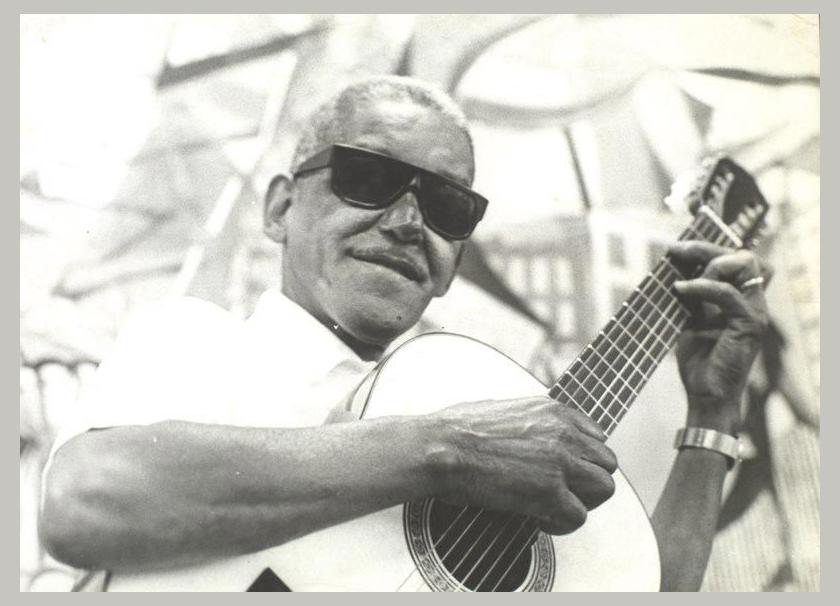 Cartola
Cartola
Cartola: The Enigmatic Master of Samba
Humble Beginnings and the Birth of a Legend
Cartola, born Angenor de Oliveira Cartola, emerged from the humble streets of the Rio de Janeiro favelas in the early 20th century. Raised in an underprivileged environment, he found solace in music, writing and singing melodies that resonated with the daily struggles of his community.
In the 1930s, Cartola joined several samba groups, including the legendary Estação Primeira de Mangueira. His poetic lyrics, rhythmic compositions, and charismatic presence quickly caught the attention of audiences and fellow musicians alike.
Challenges and Controversies
Cartola's path was not without its obstacles. His blunt honesty and outspoken nature often drew controversy. He openly criticized the socio-political injustices rampant in Brazilian society, a stance that led to periods of censorship and persecution.
Despite these challenges, Cartola's music remained a powerful voice for the marginalized. His songs became anthems of resistance and hope, inspiring generations of artists and activists.
Lyrical Masterpieces and Collaborations
Cartola's lyrics were hailed for their depth, simplicity, and evocative imagery. He painted vivid portraits of everyday life, love, and the struggles of the working class.
His most iconic composition, "O Mundo É Um Moinho" ("The World Is a Mill"), is a masterpiece of allegory and social commentary. It depicts the relentless grind of life, where individuals are constantly being crushed and reshaped by the machinery of society.
Cartola collaborated with numerous talented musicians throughout his career, including his longtime friend and partner, Zé da Zilda. Their partnership produced some of the most memorable samba classics, including "As Rosas Não Falam" and "Preciso Me Encontrar."
Discography and Recognition
Cartola's extensive discography spans decades, featuring both solo and collaborative albums. Some notable releases include:
* "Cartola" (1974)
* "Cartola e Zé da Zilda" (1976)
* "Verde Que Te Quero Rosa" (1984)
In recognition of his extraordinary talent, Cartola received numerous awards and accolades. He was posthumously honored with the Latin Grammy Lifetime Achievement Award in 2012.
Legacy and Impact
Cartola's music continues to captivate audiences around the world. His songs have been interpreted by countless artists and have become an integral part of Brazilian culture.
As a composer, poet, and activist, Cartola left an enduring mark on the history of samba. His music remains a testament to the resilience of the human spirit and a reminder of the power of art to inspire change.
Humble Beginnings and the Birth of a Legend
Cartola, born Angenor de Oliveira Cartola, emerged from the humble streets of the Rio de Janeiro favelas in the early 20th century. Raised in an underprivileged environment, he found solace in music, writing and singing melodies that resonated with the daily struggles of his community.
In the 1930s, Cartola joined several samba groups, including the legendary Estação Primeira de Mangueira. His poetic lyrics, rhythmic compositions, and charismatic presence quickly caught the attention of audiences and fellow musicians alike.
Challenges and Controversies
Cartola's path was not without its obstacles. His blunt honesty and outspoken nature often drew controversy. He openly criticized the socio-political injustices rampant in Brazilian society, a stance that led to periods of censorship and persecution.
Despite these challenges, Cartola's music remained a powerful voice for the marginalized. His songs became anthems of resistance and hope, inspiring generations of artists and activists.
Lyrical Masterpieces and Collaborations
Cartola's lyrics were hailed for their depth, simplicity, and evocative imagery. He painted vivid portraits of everyday life, love, and the struggles of the working class.
His most iconic composition, "O Mundo É Um Moinho" ("The World Is a Mill"), is a masterpiece of allegory and social commentary. It depicts the relentless grind of life, where individuals are constantly being crushed and reshaped by the machinery of society.
Cartola collaborated with numerous talented musicians throughout his career, including his longtime friend and partner, Zé da Zilda. Their partnership produced some of the most memorable samba classics, including "As Rosas Não Falam" and "Preciso Me Encontrar."
Discography and Recognition
Cartola's extensive discography spans decades, featuring both solo and collaborative albums. Some notable releases include:
* "Cartola" (1974)
* "Cartola e Zé da Zilda" (1976)
* "Verde Que Te Quero Rosa" (1984)
In recognition of his extraordinary talent, Cartola received numerous awards and accolades. He was posthumously honored with the Latin Grammy Lifetime Achievement Award in 2012.
Legacy and Impact
Cartola's music continues to captivate audiences around the world. His songs have been interpreted by countless artists and have become an integral part of Brazilian culture.
As a composer, poet, and activist, Cartola left an enduring mark on the history of samba. His music remains a testament to the resilience of the human spirit and a reminder of the power of art to inspire change.